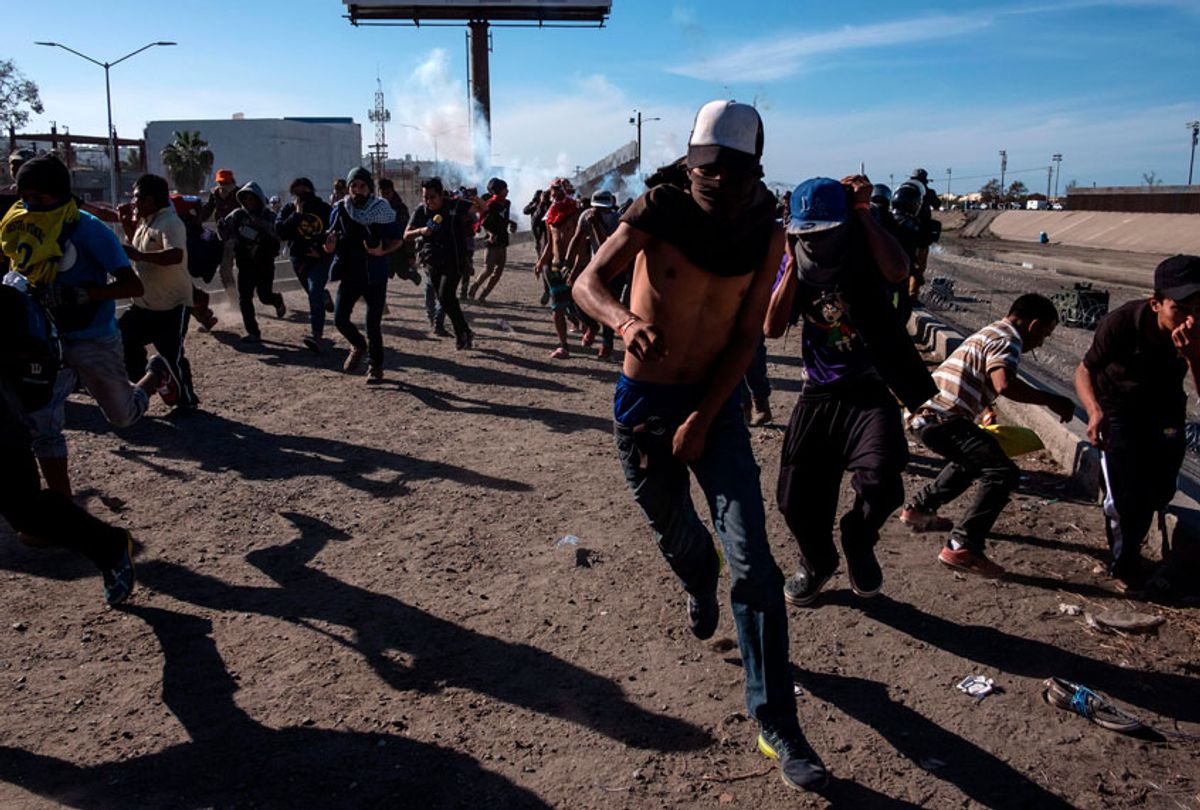NBC 7 of San Diego has obtained documents that allege that the U.S. government created a database to track journalists and activists connected to the migrant caravan story that made international headlines last year. The leaked documents, according to the report, were provided by a Homeland Security source under the condition of anonymity.
At the end of 2018, 5,000 immigrants from Central America traveled from Central America to the Southern border between the United States and Mexico. At one point, President Donald Trump called the refugee march "an invasion of our country"; meanwhile, pundits believed the fear-mongering optics of the migrant caravan would have a favorable effect on the GOP in the 2018 midterm elections. Disinformation around the migrant caravan led many journalists and activists to watch and report on it as it unfolded. NBC 7 reports that in the months that followed the event, some journalists who covered the caravan — in addition to those who offered support to the migrants — suspected they had become targets of border officials. The NBC 7 report suggests these suspicions weren't unfounded.
From the NBC 7 report:
...documents leaked to NBC 7 Investigates show [that] their own government had listed their names in a secret database of targets, where agents collected information on them. Some had alerts placed on their passports, keeping at least three photojournalists and an attorney from entering Mexico to work.
The source said the documents or screenshots show a SharePoint application that was used by agents from Customs and Border Protection (CBP) Immigration and Customs Enforcement (ICE), the U.S. Border Patrol, Homeland Security Investigations and some agents from the San Diego sector of the Federal Bureau of Investigations (FBI)."
The documents obtained list people whom officials believe should be screened at the border, according the report, which included ten journalists, a U.S. attorney, and 47 people from the U.S. and other countries who were labeled as "organizers," those from organizations like Border Angels and Pueblo Sin Fronteras, or those whose "role" was listed as "unknown."
The document, which is titled “San Diego Sector Foreign Operations Branch: Migrant Caravan FY-2019, Suspected Organizers, Coordinators, Instigators and Media,” was dated January 9, 2019.
NBC 7 news blurred names and photos of those who did not give permission to publish their information. The source told NBC 7 that the agents had created dossiers for each person listed. For each individual in the spreadsheet, there is a line titled "disposition," which indicates if the person has been interviewed, tracked, or arrested.
“We are a criminal investigation agency, we’re not an intelligence agency,” the source told NBC 7. “We can’t create dossiers on people and they’re creating dossiers. This is an abuse of the Border Search Authority.”
A Customs and Border Protection (CBP) spokesperson did not answer all of NBC 7's questions in response to the report, nor confirm the validity of the documents. In a statement, a CBP spokesperson said: “Criminal events, such as the breach of the border wall in San Diego, involving assaults on law enforcement and a risk to public safety, are routinely monitored and investigated by authorities.”



Shares